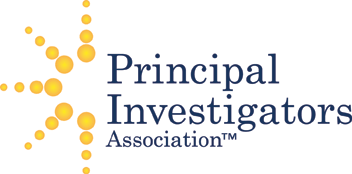Revising and Resubmitting an NIH Grant: Deciding Between A1 and A0
Revising and Resubmitting
|
|
|
Winning an NIH grant, besides being difficult, requires a lot of time and effort. It is not uncommon for an investigator to take several months to write the proposal, while simultaneously collecting and publishing pilot data before actually submitting the grant to the NIH for merit review. After merit review, provided the proposal has a score which ranks it high enough, it will go through a second level of review at the Institute or Center that it was initially submitted through. At this stage of the process, a decision to fund or reject the project will be made. Given the large number of proposals received, the nature of the review process, and funding limits, the number of grants chosen for funding during each cycle is small. Award data for the NIH as a whole reveals that approximately 90 percent of submitted application are not funded. This must-attend Webinar has been designed to provide tips and strategies to improve your chances of being awarded funds after resubmitting your initial proposal. While focusing primarily on the R01 mechanism, the information presented can be applied to virtually all other NIH grant types. Since 2009, NIH only allows investigators to submit a particular proposal twice, once as a new submission (A0) and one resubmission (A1). One option which has always been open to investigators after the rejection of an A1 resubmission is to substantially revise the content and scope of the project in order to be eligible for submission as a new application. Beginning in April of 2014, there is a new policy whereby researchers have an additional option to submit the same idea contained in the rejected A1 as an A0 application for the next appropriate due date. Details of this new policy, how it may shape your thinking whether to submit your revised application as A1 or A0, and strategies for the revision itself, will be presented. |
|
|
Early-Bird Registration:Purchase this *Live Webinar by June 12th for only *Live attendance is NOT required to receive your Free recording. |
|
|
Registration Includes:
*Log-in links cannot be shared. Have additional questions? You have the floor with the speaker during an interactive Q&A. Remember, you can submit your questions in advance via email to [email protected]. SITE LICENSES AVAILABLE! If you have questions or would like to speak to our Webinar specialist about our site license, please call 800-303-0129 ext 506. |
 |
|
This Webinar presentation is brought to you as a training tool by the Principal Investigators Association, which is an independent organization. The presentation, tools presented and their contents are not connected with the National Institutes of Health (NIH), nor are they endorsed by this agency. All views expressed are those personally held by the presenter and are not official government policies or opinions. |
Additional Information
| Live Webinar Format | Live + CD-Rom, Live + MP4, Live + PDF Transcript |
|---|
